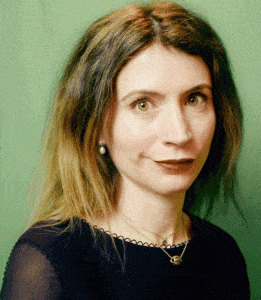Anastasia Valassopoulos in the Journal of Postcolonial Writing:
I am looking forward to our discussion here on your latest monograph, Britain Through Muslim Eyes: Literary Representations, 1780−1988. It’s 100,000 words: that’s a very long book! But how long has it taken you to write it?
 Claire Chambers (CC): In a way this book goes all the way back to the mid-1990s when I’d had a gap year in which I taught English to schoolchildren in Pakistan. I’d been motivated to go to Pakistan because of my experiences growing up in Leeds with many British-Asian friends. I first stayed briefly in a north-western city called Mardan, which was quite conservative. After leaving Mardan, my friend and I went to what seemed to us to be the big smoke of nearby Peshawar, the capital of what was then called the North-West Frontier Province, now Khyber Pakhtunkhwa. This was in 1993−94, not long after Osama bin Laden had left the city in 1990, having made it his home for eight years (Rashid [2000] 2001, 132−133). At that time few Europeans knew about the region. From spending ten months in Peshawar I became aware of tension and volatility stemming from the civil war in nearby Afghanistan, despite the city’s many charms and gracious hospitality. In my book Rivers of Ink(2017), which is a collection of essays, many of which come from the columns I regularly write for the Pakistani national newspaper Dawn, I include a short account of my time in Peshawar.
Claire Chambers (CC): In a way this book goes all the way back to the mid-1990s when I’d had a gap year in which I taught English to schoolchildren in Pakistan. I’d been motivated to go to Pakistan because of my experiences growing up in Leeds with many British-Asian friends. I first stayed briefly in a north-western city called Mardan, which was quite conservative. After leaving Mardan, my friend and I went to what seemed to us to be the big smoke of nearby Peshawar, the capital of what was then called the North-West Frontier Province, now Khyber Pakhtunkhwa. This was in 1993−94, not long after Osama bin Laden had left the city in 1990, having made it his home for eight years (Rashid [2000] 2001, 132−133). At that time few Europeans knew about the region. From spending ten months in Peshawar I became aware of tension and volatility stemming from the civil war in nearby Afghanistan, despite the city’s many charms and gracious hospitality. In my book Rivers of Ink(2017), which is a collection of essays, many of which come from the columns I regularly write for the Pakistani national newspaper Dawn, I include a short account of my time in Peshawar.
Thinking back on all this a decade later in the mid-2000s, I realized that my middle-class British-Asian friends and I hadn’t really understood what was going on in our own city.
More here.
